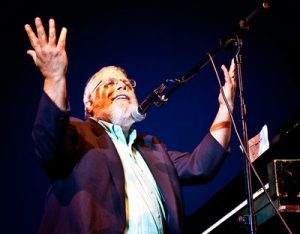In the wake of the seemingly dire Pew Research Center study, the American Jewish establishment might be at a loss -- not for words, surely, but for ideas -- on how best to respond. Take heart. You needn’t go too far afield in search of reassurance and with it, heartening new forms of collective engagement. All you have to do is to visit Princeton next week, Columbia University in mid-January and the Skirball in Los Angeles a few months later. Pitch a tent in each one of these venues and you’ll encounter a dazzling round of Jewish cultural activities that is sure to lift your spirits.

This coming Friday, Princeton -- yes, you’ve read that correctly -- will play host to a one day symposium, “Fiddler at 50,” that takes the measure of what Alisa Solomon, the author of the must-read, Wonder of Wonders: A Cultural History of Fiddler on the Roof, calls the most culturally insistent of theatrical productions. Drawing a mix of veteran theater-folk, including the redoubtable Sheldon Harnick, scholars like Solomon as well as the newest generation of Fiddler fans -- Princeton undergrads -- the event promises to enliven our understanding of one of American Jewry’s most enduring cultural milestones.
A few weeks later, Columbia will play host to a free, intensive and immersive one-week long workshop devoted to another one of American Jewry’s cultural touchstones: comics. The handiwork of Tent: Encounters with Jewish Culture, a recent initiative of the Yiddish Book Center, this confab offers a whirlwind of activities designed to send American Jewish twenty-somethings with a keen interest in comics into orbit -- and, when down on earth, in contact with one another.
Meanwhile, those who fancy themselves foodies, foodie-entrepreneurs or just good eaters should flock to Los Angeles in March for Tent: Food LA, yet another free, intensive and immersive one week-long workshop. This one brings together chefs, food writers and those with a hearty appetite for conversation and an abiding interest in Jewish cookery, then & now.
In each instance, as tradition crosses paths with modernity, the results are likely to be as inspiring -- and as surprising -- as fiddlers perched atop the roofs of Broadway.


